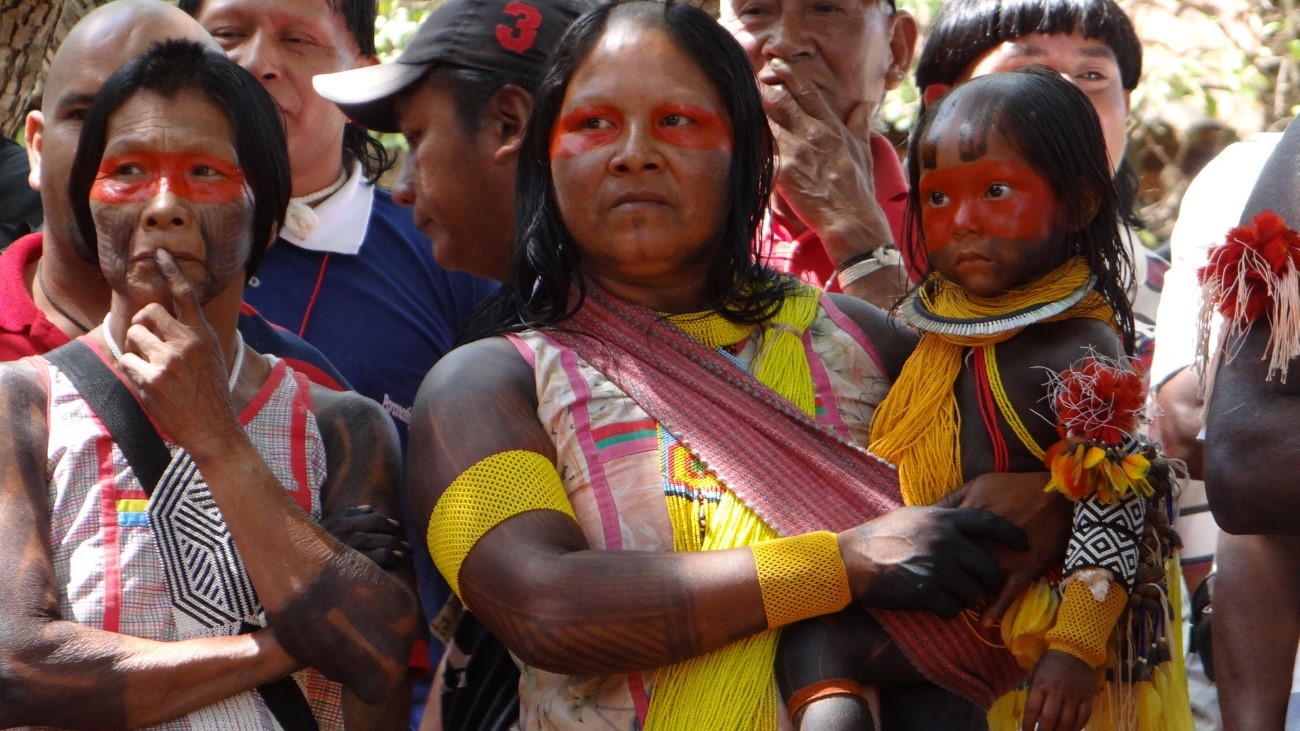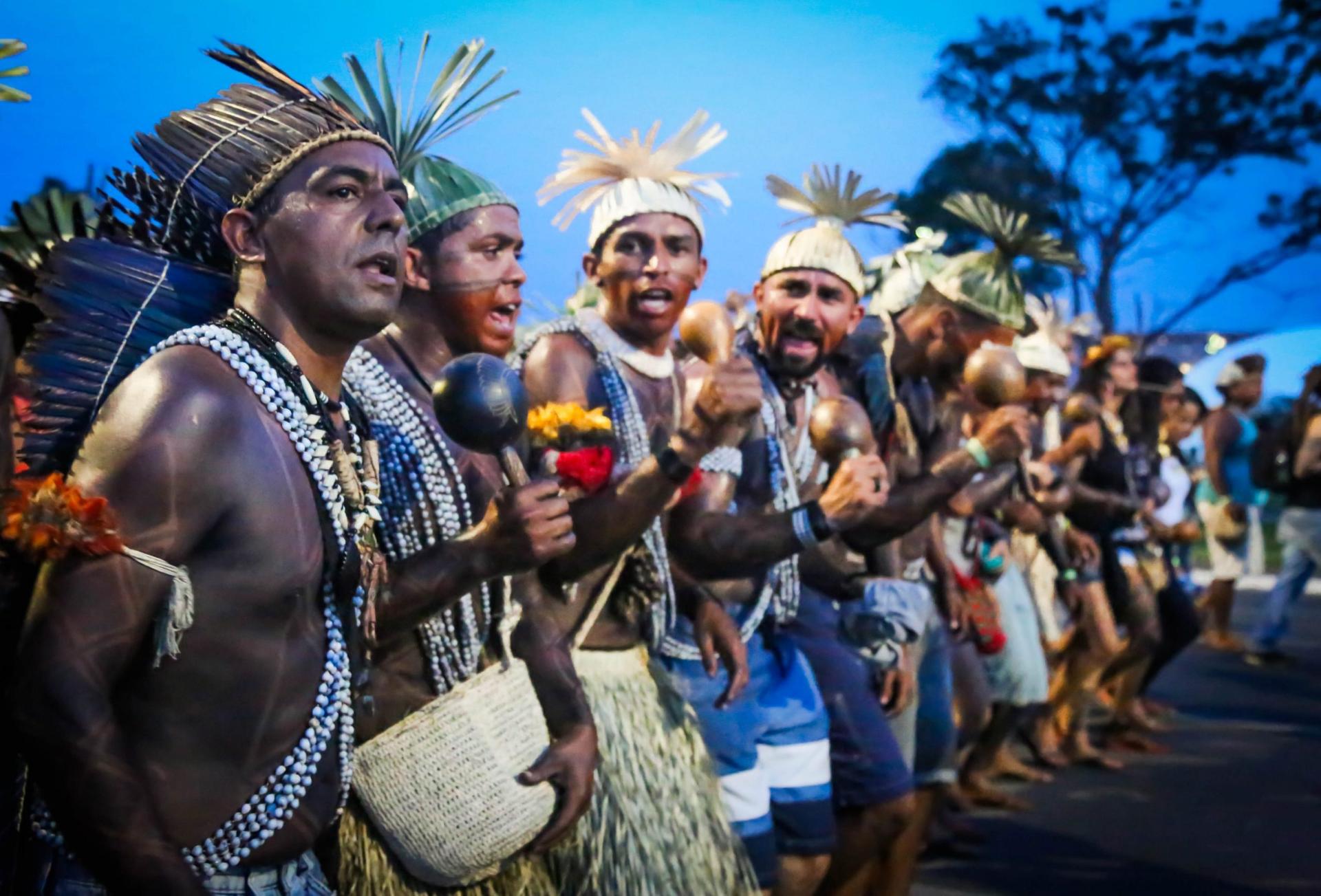SÃO PAULO – A report on the violence against indigenous peoples in Brazil in 2019, published by the Indigenous Missionary Council (CIMI) of the bishops’ conference, showed that the number of intrusions into indigenous reservations more than doubled last year.
Among 19 categories of violence against indigenous peoples analyzed in the report, 16 had an increase in the number of cases in 2019. “Possessory invasions” – the illegal occupations of indigenous lands with the intention of stealing them – rose from 109 cases in 2018 to 256 in 2019.
Most invasions were associated with other crimes, including illegal logging and mining, the implementation of business endeavors, and drug trafficking operations.
The number of incidents involving physical violence more than doubled, increasing from 110 cases in 2018 to 276 cases in 2019. The report mentions 113 murders. Since 1985, there were at least 1,193 homicides of indigenous persons in Brazil.
“That very negative reality reflects the situation we’re living in Brazil since President Jair Bolsonaro took office at the beginning of 2019. He has been encouraging such actions,” said Antonio Cerqueira de Oliveira, CIMI’s executive secretary.
According to De Oliveira. previous administrations failed to implement effective policies to secure the indigenous’ rights, “but at least they didn’t encourage people to act against them.”
Bolsonaro – whose campaign was backed by landowners – has repeatedly said his administration wouldn’t grant indigenous peoples any new territory. According to the CIMI report, among 1,298 indigenous territories in Brazil, 829 are still waiting for the Brazilian State to conclude the statutory mandated demarcation process.
“He [Bolsonaro] argues that the indigenous peoples should live in the city,” De Oliveira told Crux.
When the president expresses these views, he’s giving the predatory segments of the economy the idea that they can take possession of indigenous territories, said Roberto Liebgott, the CIMI coordinator for southern Brazil.

“The record number of wildfires in the Amazon that we have been seeing, accompanied by a growing deforestation rate, are an evidence of that,” he told Crux.
De Oliveira explained the indigenous reservations constitute the parts of the rainforest that are most well-preserved.
“At the United Nations General Assembly, Bolsonaro blamed the indigenous peoples for setting fire to the bushes, but it’s not true. They’re also victims,” he said.
In 2019, hundreds of wildfires destroyed indigenous reservations across the country.
“The Kraho Kanela people from Tocantins State suffered with fires in 95 percent of their territory,” Eliane Martins, CIMI’s regional coordinator, told Crux.
According to her, the fire started at a nearby ranch and spread to the indigenous territories, causing irreversible damage to the local flora and fauna. Some people developed respiratory problems due to the smoke but couldn’t receive medical attention.
“The access to healthcare services is more and more difficult for them,” she said.
Liebgott noted that one of Bolsonaro’s first measures was to suspend contracts with healthcare providers that worked with indigenous peoples, ostensibly in order to investigate their finances.
“The government stopped directing funds to such services,” he said.
Bolsonaro also terminated an agreement with the Cuban government – for ideological reasons – which had sent hundreds of doctors to serve in poor areas in Brazil, including indigenous villages.
“Without those professionals, most indigenous territories remained without a doctor,” Liebgott added.
The consequences were terrible for the indigenous groups in the country. CIMI’s report claimed that the number of cases of child mortality rose from 591 in 2018 to 825 in 2019. Thirty-one indigenous persons also died due to the lack of medical assistance in 2019.
In 2019, CIMI also received 66 complaints over the denial of the right of special education for indigenous groups (the Brazilian law determines that the indigenous peoples have the right to a particular type of school education, involving their original languages and aspects of their specific cultures).
One of the gloomiest aspects of the overall deterioration of the quality of life of the indigenous groups in Brazil is the growing number of suicides in villages. In 2019, at least 133 indigenous persons killed themselves – in 2018, there were 101 cases.
“We understand that the corrosion of the public policies directed to indigenous groups is part of a political platform. Unfortunately, it has been also taken on by the other powers of the [Brazilian state], which are neglectful in regard to the indigenous peoples,” Sister Laura Pereira Manso, a CIMI missionary, told Crux.
Manso mentioned the hundreds of bills currently being discussed in the Brazilian Congress which one way or another may harm indigenous rights.
“There are plenty of projects with the goal of loosening the protection to the environment and to the indigenous population,” she said.
Such an agenda echoes the indigenist perspective of the military junta which ruled Brazil between 1964 and 1985, Liebgott said.
“The military had established a ‘chronogram of assimilation’ of the indigenous population to the national society. That same integrationist ideology is now advocated by Bolsonaro,” he said.
De Oliveira said that CIMI will keep reporting governmental misdeeds in relation to the indigenous peoples and taking the complaints and accusations to national and international forums.
“It’s an opportunity that we’re giving to this administration to reflect on its mistakes,” he said.















